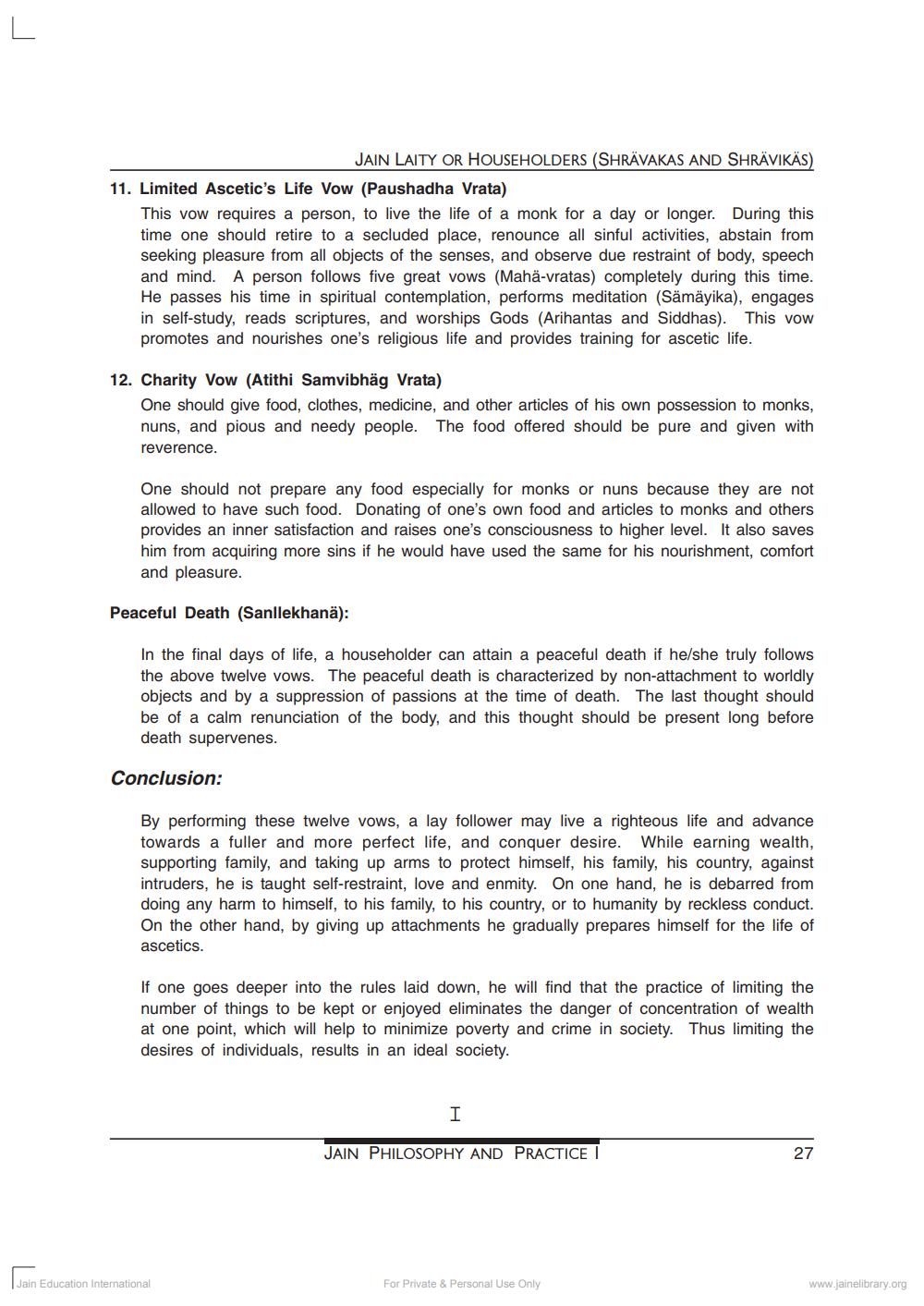________________
JAIN LAITY OR HOUSEHOLDERS (SHRÄVAKAS AND SHRÄVIKÄS) 11. Limited Ascetic's Life Vow (Paushadha Vrata)
This vow requires a person, to live the life of a monk for a day or longer. During this time one should retire to a secluded place, renounce all sinful activities, abstain from seeking pleasure from all objects of the senses, and observe due restraint of body, speech and mind. A person follows five great vows (Mahä-vratas) completely during this time. He passes his time in spiritual contemplation, performs meditation (Sämäyika), engages in self-study, reads scriptures, and worships Gods (Arihantas and Siddhas). This vow promotes and nourishes one's religious life and provides training for ascetic life.
12. Charity Vow (Atithi Samvibhäg Vrata)
One should give food, clothes, medicine, and other articles of his own possession to monks, nuns, and pious and needy people. The food offered should be pure and given with reverence.
One should not prepare any food especially for monks or nuns because they are not allowed to have such food. Donating of one's own food and articles to monks and others provides an inner satisfaction and raises one's consciousness to higher level. It also saves him from acquiring more sins if he would have used the same for his nourishment, comfort and pleasure.
Peaceful Death (Sanllekhana):
In the final days of life, a householder can attain a peaceful death if he/she truly follows the above twelve vows. The peaceful death is characterized by non-attachment to worldly objects and by a suppression of passions at the time of death. The last thought should be of a calm renunciation of the body, and this thought should be present long before death supervenes.
Conclusion:
By performing these twelve vows, a lay follower may live a righteous life and advance towards a fuller and more perfect life, and conquer desire. While earning wealth, supporting family, and taking up arms to protect himself, his family, his country, against intruders, he is taught self-restraint, love and enmity. On one hand, he is debarred from doing any harm to himself, to his family, to his country, or to humanity by reckless conduct. On the other hand, by giving up attachments he gradually prepares himself for the life of ascetics.
If one goes deeper into the rules laid down, he will find that the practice of limiting the number of things to be kept or enjoyed eliminates the danger of concentration of wealth at one point, which will help to minimize poverty and crime in society. Thus limiting the desires of individuals, results in an ideal society.
I
JAIN PHILOSOPHY AND PRACTICE I
Jain Education International
For Private & Personal Use Only
www.jainelibrary.org




